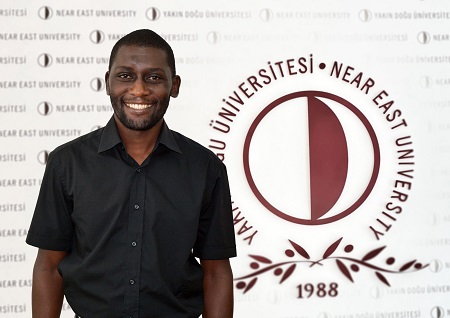

There are quite a few people, actually. However, I can say that Prof. Paul Mavima, Minister of Skills Development and Audit in the Parliament of Zimbabwe, is my idol. Minister Mavima supported me in various ways during my undergraduate studies. I stayed at his home in Harare, Zimbabwe, while studying at the University of Zimbabwe during 2013 and 2014. He also helped pay my tuition fees during my second semester there and later assisted me in applying for and securing a scholarship to continue my undergraduate studies at Near East University in Cyprus.
Additionally, I have learned many things from Minister Mavima, from the way he conducts himself to his academic and career achievements. He has also motivated me to pursue my studies up to the doctoral level. Inspired by his accomplishments as an academic and leader, I resolved to grow academically, aiming to emulate his successes. When I was planning to start my doctoral studies, he emphasized the importance of research, conferences, and congresses in an academic’s journey. This advice became even more meaningful when I began my doctoral studies, as professors like Assoc. Prof. Dr. Behiye Cavosoglu and Prof. Dr. Huseyin Ozdeser further stressed the significance of research in achieving success in academia. This encouragement motivated me to work diligently, leading to my first publications in Web of Science in 2021.
“Persevere and conquer! Indeed, if you persevere, you will ultimately conquer”
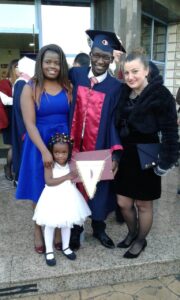
I have learned quite a few valuable lessons throughout my research career. One of the greatest lessons I’ve learned is best captured by the words ‘PERSEVERANCE,’ ‘DEDICATION,’ and ‘LOYALTY.’ As the motto of my high school says, ‘Persevere and conquer.’ Indeed, if you persevere, you will ultimately conquer. The journey of a researcher is not filled with roses; it’s a challenging path that requires one to keep pushing forward without giving up. Learning how to write a research paper is difficult for beginners, but certainly not impossible. You need to be dedicated to your work—learn, understand, and then apply what you’ve learned through publications.
When I began my research, it was intimidating and challenging, with various paper rejections from journals. Even now, some papers are rejected, but I now understand how the process works, making it easier to manage. Because of this experience, I no longer believe in failure. You need to stay focused on the work at hand to meet any goals you set.
“As an economist, I aim to advance environmental sustainability, human development, and economic growth. These efforts are crucial for achieving and maintaining sustainability across generations”
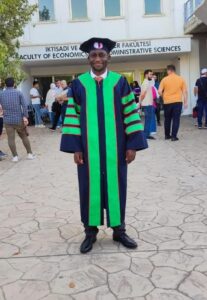
In this world, it is essential to adapt to the dynamic, ever-changing environment and to strive to be at the center of change as well. In recent years, AI has become significant in every field; however, I have not yet fully embraced AI in my own area of research. Therefore, I plan to explore how I can incorporate AI into my field, allowing me to develop policies that are more relevant, reliable, and robust. As an economist, I aim to advance environmental sustainability, human development, and economic growth. These efforts are crucial for achieving and maintaining sustainability across generations.
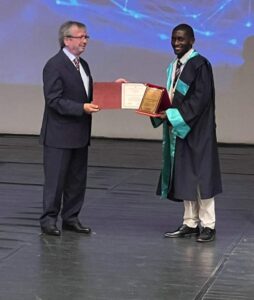
What is the scientific achievement or milestone that has made you most proud so far?
Firstly, I am proud of my major contributions in the fields of Energy Economics, Environmental Science and Pollution, Exchange Rate Analysis, and Economic Development. With up to 30 papers published in Web of Science and an H-index of 12 within just three years, this is a significant achievement for me. The H-index is valuable in demonstrating the global impact of our research.
Secondly, in my Ph.D. thesis, I introduced the concept of ‘Effective Capital’ as a critical factor in promoting economic development—an area previously unexplored by other studies. I demonstrated how energy and capital are complementary factors of production and how their combined effect can influence economic development. I have since progressed to the concept of ‘Green Effective Capital,’ which includes only clean energy sources and has shown favorable impacts on the environment. I have published numerous articles on this idea, with some still under review and revision.
“I plan to explore how I can incorporate AI into my field, allowing me to develop policies that are more relevant, reliable, and robust”
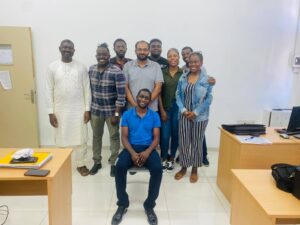
Time is limited, in Economics, we can say it is a scarce resource, yet we need time to carry out our unlimited tasks. Thus, as a researcher I allocate the time available to me to different tasks and fully utilize it to achieve my set goals. I understand the importance of time and ensures to get the maximum value out of it. When I fail to meet my targets with the set period, I usually get to accept that per adventure my targets were unrealistic and will always adjust to allow more time to accomplish my targets. Stress is a common problem to us as researchers. When things fail to move the way you want sometimes you end up being stressed. However, I have come to appreciate that things will not always move as per my plan and wish. I have developed a culture of accepting that at some point in time in life I will get some outcomes that are not favorable. Accepting and understanding that stress avoidance is inevitable has greatly helped me to face it when it comes my way and move on with life.
Who is Assist. Prof. Dr. Abraham Deka?
Assist. Prof. Dr. Abraham Deka was born in Bulawayo, Zimbabwe, in 1992. He received his BSc and MSc degrees in Banking and Finance, and Ph.D. degree in Economics from Near East University, Nicosia, Cyprus, in the years 2017, 2019 and 2024, respectively. He graduated from his Bachelor’s degree as the Faculty Salutatorian. He started teaching at Near East University in 2022 as a part-time instructor and later became a full-time member of staff in the Department of Economics. His research interests include Economic development, Energy Economics, Environmental Science and Pollution research. He has published over 30 papers in prestigious international journals, indexed in the Web of Science. In 2023, he received the Young Researcher Encouragement Award, for his outstanding research performance in the year 2022. In 2024, he has also received the Young Researcher Award for his outstanding research performance in the year 2023. He is married and has two children.